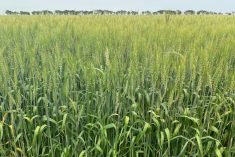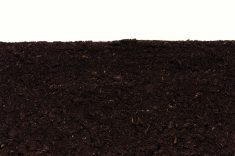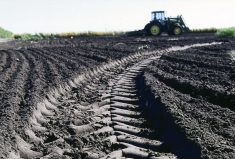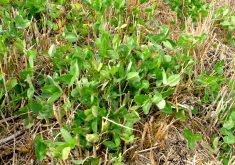At Ag in Motion 2023, the Soil Conservation Council of Canada (SCCC) announced a new initiative — a committee of “Soil Champions.”
These soil champions are tasked with conveying a soil health message beyond the farm to the broader agricultural industry, food processors, consumers and the government. Their message: the importance of soil conservation. They will be the “catalyst that ensures the care and protection of agricultural soil for the enduring benefit of society and the environment.”
The soil champions are Ian Boyd, SCCC chair; Jay Bradshaw, a former president of Syngenta Canada; Don Lobb, an Ontario farmer and longtime conservation advocate; Andrew Graham, retiring executive director of the Ontario Soil and Crop Improvement Association; Jim Tokarchuk, SCCC’s executive director and Glacier FarmMedia’s very own Lynda Tityk.
Read Also
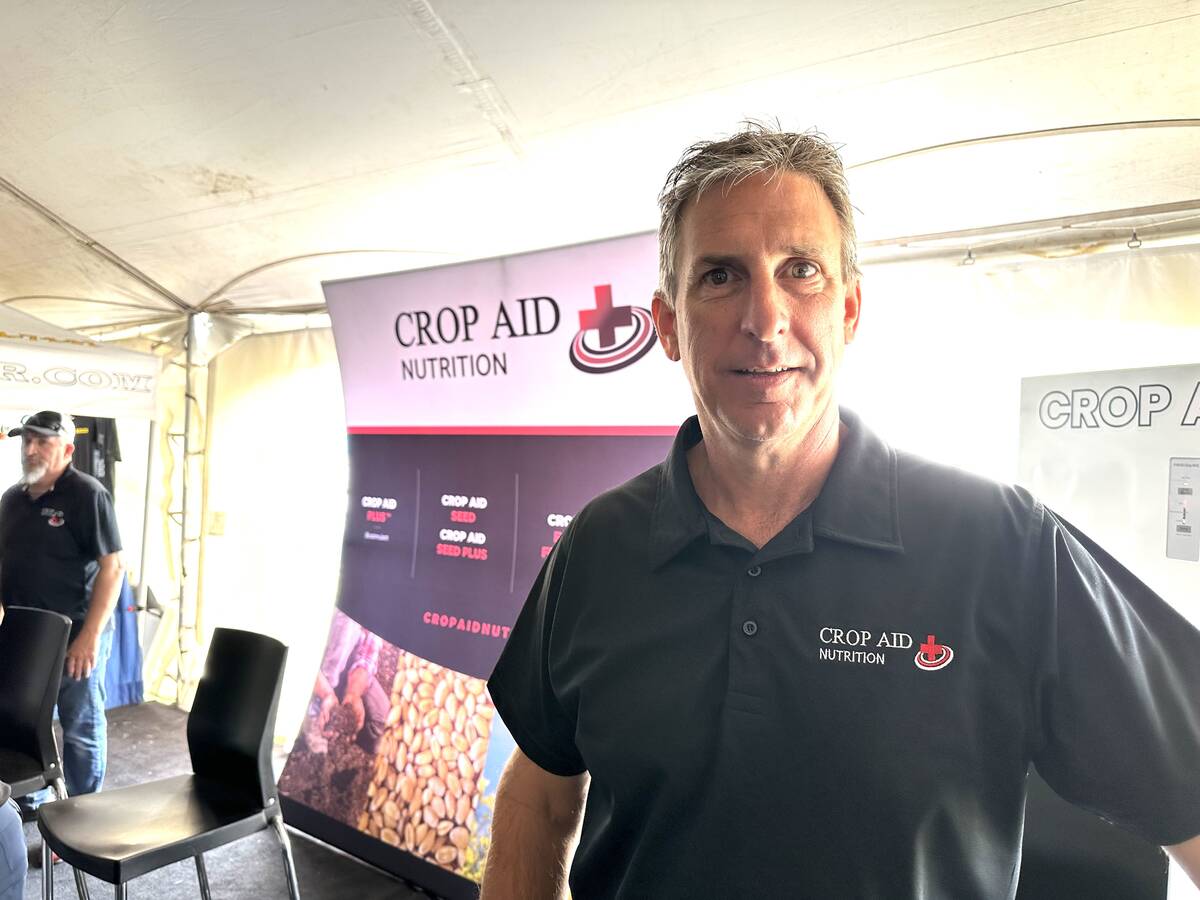
New soil treatment targets saline patches in fields
Crop Aid SS is a Saskatchewan-made spray that’s intended to help farmers manage saline soils by leaching salts away from the root zone.
Healthy soil, healthy people
When we consider the soil we grow food in, we now know about the importance of the microbiome — which is a diverse community of micro-organisms made up mostly of bacteria and fungi — to soil and plant health. All higher organisms have microbiomes, which are important to their health. For example, over the past two decades, the importance of the human gut microbiome to human health has been widely documented.
The evidence of the importance of microbiomes to plant and soil health is increasing. In addition, our understanding of the link between soil health and human health is evolving, and this is one of the reasons for the formation of the Soil Champions Committee — and to share that information with a broader audience.
I recently spoke with Don Lobb about this link between healthy soil and healthy people. He told me there is a growing body of evidence that shows the direct relationship between the health of the soil a crop is grown in and the nutrients we ingest. That the nutrients, minerals and vitamins we eat from plants and livestock come directly from the soil. Thus, a soil that is degraded will produce crops with less nutrients, minerals and vitamins, and less nutrient-dense food for us to consume.
Don recommended I check out the book Dirt: The Erosion of Civilizations by David R. Montgomery, who is a geomorphologist with the Department of Earth and Space Sciences at the University of Washington (UW), which I’ve added to my reading list. In the meantime, I watched a presentation Montgomery made to the Soil Health Institute in 2018 at a meeting called the Conference and Connections Between Soil Health and Human Health.
Various studies, he states, have documented long-term mineral declines in food. The example Montgomery cites is a 2003 study of mineral depletion levels in vegetables from 1940-1991 in the UK, where copper decreased by 76 per cent, calcium by 46 per cent, iron by 27 per cent, magnesium by 24 per cent and potassium by 16 per cent.
There is a growing list of studies to support that conventional agronomic practices affect the soil microbiome, mineral micronutrient provisioning for crops and phytochemical and antioxidant production, he adds.
Since writing Dirt, Montgomery has written three more books, the latest (co-authored with his spouse Anne Biklé) called What Your Food Ate, connects the dots between soil health, crop and livestock health and human health.
When asked by UW News what he hoped people would take away from this book, Montgomery said, “That what’s good for the land is good for us too; that agricultural policy is health policy.”
Which brings me back to our own champions of soil health, whose committee will provide a forum for soil health care with farmers, consumers, food processors, researchers and policymakers and engage in projects that can help build broad societal appreciation for soils, and bolster support from the farm community and government. Whose purpose also includes to foster the protection, care and regeneration of soil health and productivity to ensure its capacity to produce reliably and sustainably.
The committee will participate in the following supporting activities:
1. Promote soil in all activities as an essential, strategic natural resource. Partners should include a wide variety of entities through society, the agri-food industry and government.
2. Provide a forum for collaboration on soil care — practices, outcomes and standards. Partners include consumers, food processors, retailers, ag business, farmers, academia, policymakers and communicators.
3. Facilitate national roundtables to better detail the definitions of soil health and sustainable agriculture. Partners include all stakeholders.
4. Promote research and demonstration that aligns with government, social, industry and agricultural capability, requirements and expectations.
5. Participate in activities that support soil health and sustainable and regenerative agriculture practices.
The appointment of the new committee comes as the Standing Senate Committee on Agriculture and Forestry is conducting a series of hearings to prepare a new report on soil health in Canada. The last report by the Standing Senate Committee on Agriculture, Fisheries and Forestry was in 1984, called “Soil at Risk: Canada’s Eroding Future.”
Although Canadian farmers have implemented practices to improve and/or prevent soil erosion and degradation and stabilize soils since the 1984 report, soils are still at risk, warns the SCCC.
Risks and pressures to our soils continue and change (shifting climate, new pests and diseases, etc.), which is why it is important for soil conservation to stay top of mind. High-priority issues for the SCCC for the future include:
- Science must be nimble and solution-oriented, with direct links to producer needs.
- Investment is needed in new technologies and equipment.
- The system of knowledge transfer (extension) must be rebuilt to reflect current needs. Past leadership through local farm organizations has declined. Restoring it could cause good things to happen on the landscape.
- If we in the business of agriculture continue to only talk among ourselves about soil health, we are not likely to get much further. If we want to make healthy soil as important as clean air and water, it will take the voices and collaborative actions of many more Canadians. National leadership that engages all Canadians in sustaining our soil resources is the key.
The Soil Champions will be an important part of meeting these challenges.
Montgomery says societies that did not take care of their soil did not last because soil erosion played a key role in the demise of civilizations, such as that of Mesopotamia, Ancient Greece, the Roman Empire and more.
However, focusing on soil health and, ultimately, on human health, will ensure agriculture continues to provide nutritious food for many future generations. What an exciting and hopeful time to be a farmer!
Best wishes, Kari




